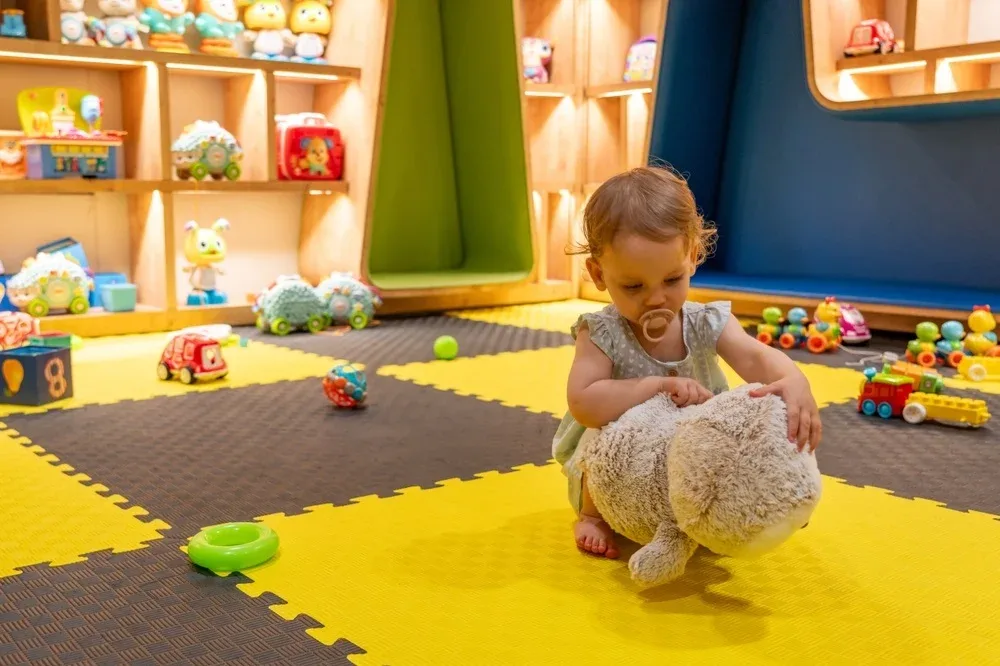
Parents often face a critical decision when choosing the right daycare provider. The well-being, safety, and development of their children rest in the hands of these professionals. It’s not just about having a passion for children but also about possessing specific qualities that make a daycare provider truly exceptional. In this article, we’ll explore the seven essential qualities every great daycare provider should have, ensuring that children under their care are nurtured, safe, and well-prepared for the future.
Contents
- 1 Introduction
- 2 Essential Qualities Every Daycare Provider Should Have
- 3 The Role of Daycare Providers in Child Development
- 4 Frequently Asked Questions
- 4.1 What makes a daycare provider trustworthy?
- 4.2 How important is creativity in a daycare setting?
- 4.3 What role does communication play in daycare?
- 4.4 Why is emotional intelligence important for a daycare provider?
- 4.5 Can patience be developed in daycare professionals?
- 4.6 How do daycare providers impact early childhood development?
- 5 Conclusion
Introduction
For many families, finding a reliable and high-quality daycare provider can feel like one of the most important decisions they will ever make. Trusting someone else with your child’s daily care, growth, and safety is no small feat. While many daycare providers genuinely love working with children, certain key qualities set great providers apart from the rest. These qualities help create an environment that supports children’s emotional, physical, and cognitive development, making them feel safe and valued.
In this guide, we’ll dive into the seven essential traits that every exceptional daycare provider should embody. Whether you’re a parent searching for the perfect daycare or an aspiring childcare professional, understanding these qualities can ensure the highest level of care for young ones.
Essential Qualities Every Daycare Provider Should Have
Patience and Understanding
Patience is arguably the most important quality for any daycare provider. Working with children, especially young ones, requires immense tolerance and empathy. Kids can be unpredictable, emotional, and demanding, and a great provider must handle various situations calmly and gracefully.
A daycare provider with patience can manage tantrums, soothe anxious children, and address different behaviors without losing composure. It’s important for children to feel that they can express their emotions without fear of reprimand. Understanding their developmental stages helps daycare providers maintain an environment where children feel secure and supported.
Strong Communication Skills
Effective communication is crucial in a daycare setting, both with the children and their parents. A daycare provider must be able to articulate needs, concerns, and progress in a clear, respectful manner. This involves active listening, responding appropriately to children’s questions, and providing feedback to parents.
Children, particularly young, may have difficulty expressing their needs. An excellent provider uses communication tools to connect with them, such as visual cues, gestures, and age-appropriate language. Equally, maintaining open and transparent communication with parents builds trust and ensures everyone is on the same page regarding the child’s care and development.
Creativity and Flexibility
Children thrive in environments that allow them to explore and express themselves creatively. Great daycare providers are inventive and flexible in their approach, offering various activities promoting curiosity and learning. A creative provider can keep children engaged through arts and crafts, storytelling, or imaginative play while fostering their cognitive growth.
Additionally, flexibility is vital in addressing children’s varying needs and moods. Depending on how children feel that day, plans and schedules may need to be adapted. A daycare provider who can pivot seamlessly ensures that the children’s experiences are enjoyable and productive, no matter the circumstance.
Passion for Child Development
Any daycare provider must have a strong passion for early childhood education and development. It’s not enough to simply watch over children; a great provider understands the developmental milestones and works to encourage growth in areas such as motor skills, language development, and social interactions.
Daycare providers who are deeply interested in child development know how to create age-appropriate activities that stimulate children’s learning and curiosity. They constantly find ways to nurture each child’s unique strengths, preparing them for future academic and social success.
Organizational Skills and Cleanliness
Running a daycare involves juggling multiple responsibilities—managing schedules, maintaining records, ensuring children’s safety, and keeping the environment clean and orderly. Strong organizational skills are essential to keeping everything running smoothly. A great daycare provider must meticulously manage daily routines, ensuring that meals, nap times, and activities are well-organized.
Cleanliness is also non-negotiable in a daycare setting. Children are more susceptible to illnesses, and a hygienic environment is crucial for their well-being. A well-organized daycare prevents chaos and minimizes the risk of accidents or health concerns.
Empathy and Emotional Intelligence
Children need emotional support as much as physical care, especially in the early years when they are still learning to navigate their emotions. Daycare providers who demonstrate empathy and emotional intelligence can effectively address a child’s emotional needs whether comforting a child who is missing their parents or helping them manage feelings of frustration, a great provider tunes into the child’s emotional state and responds appropriately.
Empathy fosters trust and a strong emotional bond between the provider and the children, helping kids feel secure and understood. Emotional intelligence also extends to recognizing a child’s struggles and offering guidance without judgment.
Dependability and Trustworthiness
Parents rely on daycare providers to be dependable and trustworthy. They need to feel confident that their children are in safe and responsible hands. A daycare provider who consistently shows up on time, communicates effectively, and follows through on commitments earns the trust of parents and children.
Dependability goes beyond just showing up. It means being attentive and proactive in ensuring the children’s safety, keeping parents informed, and following daycare regulations. When a provider demonstrates trustworthiness, it helps alleviate parents’ concerns, allowing them to focus on their day, knowing their children are well cared for.
The Role of Daycare Providers in Child Development
Daycare providers are pivotal in a child’s development, especially early childhood. They help lay the foundation for essential communication, socialization, and problem-solving skills. K daycare providers can shape a child’s emotional intelligence and self-confidence by fostering a nurturing environment. This influence extends beyond the daycare walls, affecting how children interact with others and approach challenges in the future.
Daycare providers help children build resilience, creativity, and independence through structured activities, unstructured play, and thoughtful interactions. Their role is to supervise and actively engage and encourage children to explore the world around them.
Frequently Asked Questions
What makes a daycare provider trustworthy?
A trustworthy daycare provider consistently follows through on their commitments, communicates openly with parents, and creates a safe, nurturing environment for children. Dependability, transparency, and adherence to safety standards are key indicators of trustworthiness.
How important is creativity in a daycare setting?
Creativity is crucial in keeping children engaged and encouraging their development. Through creative activities like arts, crafts, and imaginative play, children learn to express themselves, solve problems, and explore new ideas in a fun and supportive environment.
What role does communication play in daycare?
Strong communication skills help daycare providers interact effectively with children and their parents. Providers who communicate clearly can better understand and meet the children’s needs while keeping parents informed about their child’s progress and any concerns.
Why is emotional intelligence important for a daycare provider?
Emotional intelligence allows daycare providers to connect with children on a deeper level, understanding their emotional needs and helping them navigate complex feelings. Providers with high emotional intelligence foster trust and create an environment where children feel secure and supported.
Can patience be developed in daycare professionals?
Yes, patience can be cultivated with experience, training, and self-awareness. Daycare providers often encounter challenging situations, but with time, they can learn techniques to manage stress and maintain composure, ensuring they provide a calm and supportive environment for children.
How do daycare providers impact early childhood development?
Daycare providers influence children’s cognitive, emotional, and social development. They create environments encouraging learning, exploration, and emotional growth, helping children build the foundational skills they’ll need for success.
Conclusion
Choosing the right daycare provider is essential for a child’s well-being and development. Great daycare providers care for children and help shape their future by fostering a nurturing and stimulating environment. A daycare provider ensures that each child receives the best possible care by embodying the seven essential qualities of patience, communication, creativity, passion, organization, empathy, and dependability.
Are you searching for a nurturing, safe, and creative environment for your child? At DeeCyDa Daycare, we provide exceptional care with a focus on your child’s emotional, cognitive, and social development. Our team of passionate and experienced providers is dedicated to ensuring every child thrives in a supportive setting. Contact us today to schedule a tour and discover how DeeCyDa infant care program can help your child grow, learn, and succeed!
Enroll now and give your child the best start in life!

